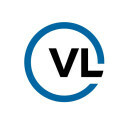Maximizing Efficiency and Profits with the Best Lease Management Tools for Real Estate Industry
They trust us:





Best Lease Management Tools For the Real Estate Industry

(source: https://images.app.goo.gl/WnvyZLJ78AnUS1Cu6)
In the real estate industry, lease management is crucial for ensuring compliance, tracking lease agreements, and improving tenant relationships.
One of the best lease management tools for the industry is Yardi Voyager. This software offers a range of solutions, including lease tracking, rent collection, and maintenance requests. With its powerful tools and user-friendly interface, Yardi Voyager is an excellent choice for businesses looking to streamline their lease management processes.
Another popular lease management tool is AppFolio Property Manager, which offers a range of features, including lease tracking, rent collection, and online maintenance requests. With its comprehensive tools and robust reporting, AppFolio Property Manager is a great choice for businesses of all sizes.
Finally, Rent Manager is a comprehensive lease management tool that offers a range of solutions, including lease tracking, rent collection, and maintenance requests. Its powerful tools make it an ideal choice for larger businesses with complex lease management needs.
Overall, these lease management tools are essential for ensuring compliance, tracking lease agreements, and improving tenant relationships, making them a must-have for real estate professionals looking to optimize their lease management processes.
What is Visual Lease?
Visual Lease is a cloud-based lease accounting and management solution designed to help businesses manage their real estate and equipment leases. It allows companies to track and manage their leases from a single platform, helping them to ensure compliance with the new lease accounting standards.
With Visual Lease, businesses can automate lease accounting processes, track critical lease dates and data, and generate reports that provide real-time visibility into their lease portfolio. The platform also offers tools for managing lease accounting, such as lease classification and calculation of lease liabilities, amortization schedules, and other financial reporting requirements.
In addition to its lease accounting and management features, Visual Lease also provides users with the ability to store and manage all lease-related documents, including lease agreements, amendments, and more. It also offers a customizable dashboard that allows users to view important lease data and KPIs at a glance.
What are the features of Visual Lease?
Visual Lease is a lease management software designed to help businesses streamline and simplify their lease management processes. Its features include:
Lease accounting: Visual Lease helps businesses comply with accounting standards such as ASC 842 and IFRS 16 by automating lease calculations, journal entries, and financial statement disclosures.
Lease administration: The software centralizes lease data, making it easy to access and manage critical lease information such as expiration dates, rental payments, and lease clauses.
Portfolio management: Visual Lease provides a dashboard view of an organization’s entire lease portfolio, allowing users to analyze and optimize their lease agreements.
Compliance: The software helps businesses comply with regulatory requirements by ensuring that lease agreements are in compliance with local and international laws.
Reporting: Visual Lease generates customizable reports that help businesses track key performance indicators, such as occupancy costs and lease expirations.
Workflow automation: The software automates workflow processes, such as notifications and reminders, to ensure that important lease events are not missed.
Document management: Visual Lease provides a secure document repository to store lease agreements, amendments, and other related documents.
Integration: The software integrates with other business systems, such as ERP, accounting, and property management software, to streamline lease management processes.
Collaboration: Visual Lease enables teams to collaborate on lease management activities, improving communication and increasing efficiency.
Overall, Visual Lease provides a comprehensive lease management solution that helps businesses improve their lease management processes, reduce risk, and increase compliance.
What is the pricing of Visual Lease?
Visual Lease offers different pricing plans based on the size of the portfolio, the number of users, and the features needed. The pricing is not available on their website, but you can request a quote by filling out a form on their website or contacting their sales team directly.
What are Lease Management tools?
Lease management tools are software applications used to manage and track the lease agreements for real estate properties. These tools are designed to help property managers and landlords organize and streamline their lease management processes, and ensure compliance with relevant laws and regulations.
Lease management tools typically include features such as lease tracking, rent collection, tenant management, and reporting and analytics. They can be used to manage various types of lease agreements, such as residential and commercial leases, and automate lease management activities.
By using lease management tools, property managers and landlords can streamline their lease management processes, reduce errors and delays, and ensure compliance with relevant laws and regulations. They can also gain insights into their lease management performance and behavior, and make data-driven decisions to optimize their lease management strategies.
Some popular lease management tools include Buildium, AppFolio, and Rentec Direct. These tools can be used by property managers and landlords of all sizes to manage and track their lease agreements, and optimize their lease management strategies.
Overall, lease management tools are an important investment for any property management or real estate organization looking to streamline their lease management processes and ensure compliance with relevant laws and regulations.
Why should Real Estate companies use Lease Management tools?
(source: https://images.app.goo.gl/i42udj9i5UAbgd538)
Real estate companies can benefit from using lease management tools to streamline and optimize their lease management processes, and to increase their efficiency and profitability. Lease management tools allow real estate companies to automate a variety of tasks, such as lease tracking, renewals, and payments, reducing administrative burdens and increasing efficiency.
These tools can also help real estate companies to improve their lease accuracy and compliance, by providing real-time data and analytics on lease terms, clauses, and deadlines. Additionally, lease management tools can help real estate companies to reduce risks and disputes, by providing insights into lease performance and tenant behavior.
By using lease management tools, real estate companies can improve their lease management and analysis, reduce costs and errors, and ultimately, increase their revenue and market share.
What features should Lease Management tools include for Real Estate agents?
Lease management tools are essential for real estate agents who want to manage their property leases and rental agreements effectively. When it comes to choosing the right lease management tools, there are several key features that should be considered.
Firstly, the software should have an easy-to-use interface that allows real estate agents to manage their leases and rental agreements quickly and easily, including the ability to create and track leases, set reminders for lease renewals and expiration dates, and manage lease-related documents.
Secondly, the software should have the ability to provide real-time analytics and reporting on lease performance, including the ability to track lease renewal rates, identify areas for improvement, and measure ROI.
Thirdly, lease management tools for real estate agents should include features that allow for customized lease management, including the ability to create and manage different types of leases, set up rent collection and payment schedules, and track tenant payments and late fees.
Fourthly, the software should have the ability to provide tenant management and communication features, including the ability to send automated rent reminders, manage maintenance requests, and communicate with tenants directly.
Fifthly, the software should have the ability to integrate with other tools and platforms used by real estate agents, such as property management software and accounting software.
Lastly, the software should have the ability to provide training and support for real estate agents, including the ability to access online resources and receive personalized coaching and feedback.
With these key features, real estate agents can manage their property leases and rental agreements more effectively, improve their lease renewal rates, and grow their business. This allows them to maintain a competitive edge in the industry and deliver high-quality services to their clients.
What types of integrations are important with Lease Management tools for Real Estate agents?
(source: https://images.app.goo.gl/WEgCBMkifnBnbw1N6)
Integrations are an important aspect of lease management tools for real estate agents, as they can help to improve lease administration, streamline workflows, and enhance collaboration. Some of the key integrations to look for when selecting a lease management tool include:
Accounting software: Integrating lease management tools with accounting software can allow real estate agents to manage their financial transactions more effectively. This integration can help agents to track rent payments, manage expenses, and create financial reports.
Customer relationship management (CRM) software: Integrating lease management tools with CRM software can allow real estate agents to manage their tenant data more effectively. This integration can help agents to track tenant activity, manage lease data, and automate tenant communication.
Property management software: Integrating lease management tools with property management software can allow real estate agents to manage their properties more effectively. This integration can help agents to track property data, manage maintenance requests, and automate property inspection.
Document management software: Integrating lease management tools with document management software can allow real estate agents to manage their lease documents more effectively. This integration can help agents to store, share, and manage lease agreements, rent invoices, and other important documents.
By selecting a lease management tool with these integrations, real estate agents can improve lease administration, streamline their workflows, and enhance collaboration, ultimately improving their business operations and growth.
What are the benefits of using Lease Management tools for Real Estate companies?
Lease management tools offer numerous benefits to real estate companies. Firstly, they provide a way to effectively manage lease agreements, by providing a centralized location to store and track lease information, including lease terms, rent payments, and maintenance schedules. This can help to reduce errors and ensure that lease agreements are up-to-date and accurate.
Secondly, lease management tools can help real estate companies to improve tenant communication and engagement, by providing a way to automate and personalize communication, and provide tenants with access to important information and updates. This can help to build trust with tenants and improve tenant satisfaction.
Thirdly, lease management tools can help real estate companies to improve financial management, by providing a way to track and analyze rent payments, maintenance expenses, and other financial data. This can help to improve financial planning and forecasting, and ultimately lead to increased business success.
Overall, the benefits of using lease management tools in the real estate industry are clear. They provide improved lease management, tenant communication and engagement, and financial management. These benefits can ultimately lead to increased business success and profitability for real estate companies.
How to choose the right Lease Management tool for your Real Estate business?
(source: https://images.app.goo.gl/b7U4KfMvJ3NK3WUW8)
Choosing the right lease management tool is essential for any real estate business looking to efficiently manage their leasing operations and maintain accurate records. Here are some factors to consider when selecting a lease management tool:
Lease tracking: Look for a tool that allows you to track leases throughout their entire lifecycle, from creation to expiration, and provides alerts for key dates and deadlines.
Customizable lease templates: Choose a tool that provides customizable lease templates, enabling you to easily create and edit leases to fit your specific needs.
Tenant communication: Select a tool that provides tenant communication capabilities, such as automated lease renewal reminders or online rent payment options.
Rent tracking: Look for a tool that allows you to track rent payments, late fees, and other financial transactions related to leases.
Maintenance tracking: Choose a tool that provides maintenance tracking capabilities, allowing you to schedule and track maintenance tasks and work orders related to leased properties.
Compliance management: Select a tool that provides compliance management capabilities, enabling you to stay up-to-date on regulatory requirements and ensure that leases are in compliance.
Document storage: Look for a tool that provides secure document storage, allowing you to easily store and access lease documents and related paperwork.
Integration: Choose a tool that integrates with your existing software and systems, such as your accounting software or property management software, to ensure a smooth workflow.
Mobile accessibility: Select a tool that provides mobile accessibility, enabling you to manage leases and related tasks on-the-go.
Security: Look for a tool that provides secure and encrypted data handling, protecting sensitive lease and business data from unauthorized access.
Ultimately, the right lease management tool can help you streamline your leasing operations and maintain accurate records, driving business success for your real estate business. By considering the above factors and choosing a tool that meets your specific needs, you can ensure that you have the right lease management solution in place.
How much does the Lease Management tools cost for the Real Estate industry?
Lease management tools are an important component of the real estate industry, enabling businesses to manage their leases more effectively, and streamline their lease administration processes. The cost of lease management tools can vary widely, depending on the specific software and the features and capabilities it offers.
Some basic lease management tools can be obtained for free, while more advanced and sophisticated software can cost several hundred to several thousand dollars per year. For example, popular lease management tools like LeaseQuery and CoStar can cost between $500 to $5,000 per year, depending on the level of features and functionality required.
However, some providers offer custom pricing plans, which can help real estate businesses to manage their costs more effectively. Additionally, some lease management tools are designed specifically for real estate businesses, which can provide tailored features and support.
Overall, the cost of lease management tools will depend on the specific needs and budget of the real estate business, and it is important to carefully evaluate different options before making a decision.
Why are Lease Management tools important for the success of your Real Estate business?
(source: https://images.app.goo.gl/Aw2BDqGdJkTUNp1L6)
Lease management tools have become increasingly important in the real estate industry, particularly for businesses that want to more effectively manage their lease agreements and property rentals. These tools offer a range of benefits that can help to improve the success of a real estate business.
One of the key benefits of lease management tools is that they can help real estate businesses to more effectively manage their lease agreements and rental properties. By providing features such as lease tracking, rent collection, and maintenance management, lease management tools can help real estate businesses to streamline their lease management processes and reduce administrative workload.
Another important advantage of lease management tools is that they can help to improve financial performance and reduce risk. By providing features such as rent tracking, expense tracking, and financial reporting, lease management tools can help real estate businesses to better track their financial performance and identify areas for improvement, leading to increased revenue and profitability.
In addition, lease management tools can help to improve tenant satisfaction and retention. By providing features such as maintenance tracking, communication tools, and tenant portals, lease management tools can help real estate businesses to better engage with their tenants and improve their overall tenant experience, leading to improved tenant satisfaction and retention.
Overall, lease management tools are an essential component of any successful real estate business that wants to more effectively manage their lease agreements and rental properties, providing a range of benefits such as improved lease tracking and management, improved financial performance and risk reduction, and improved tenant satisfaction and retention.
How to implement Lease Management tools as a realtor?
Implementing lease management tools as a realtor can help you streamline the process of managing leases, track lease details, and automate lease-related tasks. Here are some steps to help you get started:
Identify your lease management needs: Before implementing lease management tools, it’s important to identify your needs. What types of leases do you manage, and what types of tasks do you want to automate?
Choose a lease management tool: There are many lease management tools available, each with its own set of features and capabilities. Some popular options for realtors include Yardi, AppFolio, and Buildium.
Set up your lease management tool: Once you’ve chosen a lease management tool, you can start setting it up. This may involve creating a database of leases, setting up lease-related tasks and workflows, and configuring notifications and alerts to help you stay on top of lease-related activities.
Manage lease details: With your lease management tool in place, it’s important to track and manage lease details efficiently. This may involve inputting and tracking important lease information, such as lease start and end dates, rent amounts, and security deposits.
Automate lease-related tasks: With lease details managed, it’s important to automate lease-related tasks to save time and reduce errors. This may involve setting up workflows to automate tasks such as rent collection, lease renewals, and lease terminations.
Analyze lease management performance: With leases tracked and managed, it’s important to analyze performance to identify areas where you can improve your lease management strategy. This may involve tracking metrics such as occupancy rates, lease renewal rates, and lease duration, and using data to inform future lease management efforts.
By implementing lease management tools as a realtor, you can streamline the process of managing leases, track lease details, and automate lease-related tasks, ultimately helping you to save time and improve your efficiency.
Which type of real estate companies should buy Lease Management software?
(source: https://images.app.goo.gl/jrK56nB21Z13dzzJA)
Real estate companies that manage a large volume of leases, such as residential or commercial rental properties, should consider purchasing lease management software. This type of software can help real estate professionals organize, track, and optimize their lease agreements, payments, and renewals.
Lease management software can help real estate companies improve their lease management efficiency, accuracy, and compliance by providing real-time analytics and insights into lease performance and financial data. Additionally, lease management software can help real estate companies save time and resources by automating tasks such as lease tracking, invoicing, and reminder notifications.
For example, lease management software can help real estate companies manage lease expiration dates, rent payments, and late fees. Finally, lease management software can help real estate companies enhance their tenant experience and satisfaction by providing tools for lease self-service, communication, and feedback.
Overall, lease management software can help real estate companies improve their lease management process, financial performance, and tenant retention.
Final thoughts on using Lease Management tools for real estate agents
In conclusion, using Lease Management tools can be a valuable asset for real estate agents who want to manage their leases and tenancies more efficiently and effectively. These tools allow agents to track and manage their lease agreements, such as rental payments, lease terms, and maintenance responsibilities, through an online platform, which can automate tasks, such as lease renewals, rent collections, and tenant communications.
By using Lease Management tools, agents can save time and resources, while also improving the accuracy and compliance of their lease management. According to industry experts, companies that use Lease Management tools have seen a 25% reduction in lease management costs and a 30% improvement in tenant satisfaction.
Overall, Lease Management tools can help real estate agents streamline their lease management processes, reduce the risk of errors and disputes, and ultimately, improve their operational efficiency and success.
Top Lease Management tool for real estate agents
| Visual Lease |






